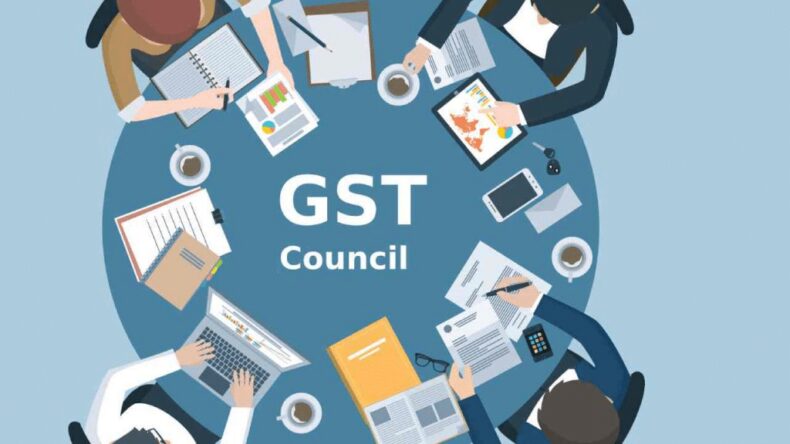
The GoM on Goods and Services Tax Appellate Tribunals (GSTATs) was established in July of last year, with Dushyant Chautala serving as its chairman.
The report of the Group of Ministers on the GST Appellate Tribunal was endorsed by the GST Council on Saturday, according to Union Finance Minister Nirmala Sitharaman, with a few revisions. The final draught amendments will be distributed to state finance ministers for their input.
The commission has recommended that the tribunals be made up of two judges, one technical member from the Center and one from each of the States, along with a former Supreme Court judge serving as president.
After presiding over the 49-member GoM report meeting, Sitharaman informed reporters that the report on the creation of the GST Appellate Tribunal had been approved with a few minor changes to the text that will be communicated with States on Sunday.
While there is not much time for the Council to convene again, the chairperson has been given permission by the Council to take the final opinion and include it in the Finance Bill.
Abhishek Jain, Tax Partner at KPMG, commented on the plan and stated a big development is an agreement on the GoM report about the establishment of a GST tribunal at the federal and state levels.
The players in the industry would expect that their protracted wait for the GST Tribunal would soon come to an end given this encouraging development, he added.
As the government cranks up audits and analytics on tax returns, anomalies in tax liabilities are being found and continuously tracked, according to Shilpa Dhobale, Head, Product and Strategy IRISGST at regtech company IRIS. As a result, taxpayers are receiving alerts.
“These issues should be resolved more quickly with the eagerly anticipated GSTAT. Businesses who have long longed for a swift and effective method of resolving GST issues might find some respite with the creation of GSTAT “She spoke.
While the creation of tribunals has experienced significant delays, Mahesh Jaising, Partner, Leader, Indirect Tax, Deloitte India, stated that “we seem to be moving in the right direction and these should become a reality soon.” He also noted that the formula for the number of members seems interesting and with equal representation by Centre and State.
Rajat Mohan, senior partner at AMRG & Associates, stated that the Council has now approved the appellate tribunals in principle with certain revisions after a delay of more than 2,000 days. New provisions might be pushed through Budget 2024 itself, according to expectations.
According to Mohan, this ruling will ultimately lighten the load on the judiciary by expediting cases that are now pending.
The GoM recommendations for the formation of the Appellate Tribunal, according to Charanya Lakshmikumaran, Partner, Lakshmikumaran & Sridharan Attorney, have progressed in a constructive way. Lakshmikumaran expressed his optimism that the draught bill would be completed in the upcoming weeks.
A GoM report to stop the leaks and boost revenue collection from goods like pan masala, gutkha, and chewing tobacco was also incorporated by the GST Council.
Observations on the change According to Shailendra Kumar, Chairperson of the TIOL Knowledge Foundation, the MRP-based cess, a tried-and-true mechanism, has been brought back as a result of the tax on Pan masala and gutkha.
It might generate some additional revenue with a track and trace feature, he suggested.
According to Vivek Jalan, Partner at Tax Connect Consultancy, the chore of timely filing GST annual returns in Form GSTR 9 has been a challenge for small taxpayers because of the numerous reconciliations needed.
“This year, the time limit for claiming ITC was moved to November 30, making it challenging to file the annual return by the deadline of December 31. For taxpayers with a revenue of up to Rs 20 Crore, the GST Council has now lowered and capped the late costs for reporting GSTR 9 at 0.04 percent of turnover. These taxpayers would feel relieved by this “said said.
The GoM report on online gambling was not discussed by the Council during this time because the elections for the Meghalaya assembly preoccupied the panel’s chairman. Conrad Sangma, the chief minister of Meghalaya, is in charge of the panel.
The Goods and Services Tax (GST) Council is led by the Union Finance Minister and is made up of the finance ministers of the states and UTs (with legislature).
You May Also Read:
49th GST Council Chaired by Union Finance Minister Nirmala Sitharaman













